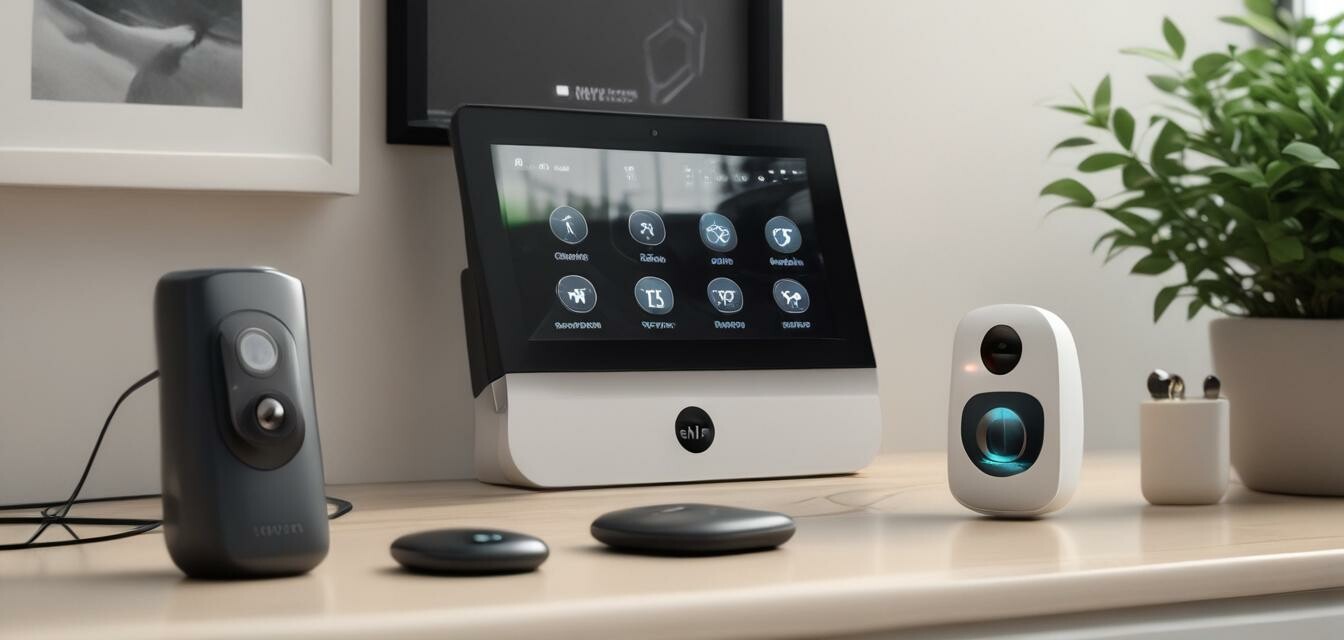
Smart Home Security
Common misconceptions about smart home security
Key Takeaways
- Smart home security systems are not as complex as they seem.
- They provide enhanced safety but are not foolproof.
- Integration with other smart devices can elevate security effectiveness.
- Privacy concerns are valid, but they can be managed with proper settings.
- Cost-effective options are available for various budgets.
As technology advances, smart home security systems have become an integral part of modern living. However, misconceptions about their functionality and reliability persist. In this article, we will debunk some common myths about smart home security systems in 2025 and provide clarity on their true capabilities and limitations.
Understanding Smart Home Security Systems
Before diving into misconceptions, let's briefly understand what smart home security systems entail. These systems include a range of devices such as:
- Surveillance cameras
- Smart locks
- Alarm systems
- Motion sensors
- Smart lighting
How they work
Smart home security systems typically operate using a centralized hub that connects various devices. This allows for remote monitoring and control through a smartphone app. Many systems also feature automation options that can enhance security measures when you're away from home.
Debunking Common Myths
| Myth | Reality |
|---|---|
| Smart home security systems are too complicated for regular users. | Most systems are user-friendly and designed for easy installation and management. |
| They will completely eliminate the risk of a break-in. | While they enhance security, no system can guarantee total prevention of burglaries. |
| Smart devices are always listening to your conversations. | Most smart devices only activate when commanded, ensuring privacy. |
| They are just as effective as traditional security systems. | Smart systems can provide enhanced features like remote access and real-time alerts. |
| All smart home security systems are expensive. | There are various budget-friendly options available that still offer robust features. |
Myth 1: Smart home security systems are too complicated
One of the biggest turn-offs for potential users is the belief that smart home systems are overly complicated. In reality, many brands have stripped down the installation and management process to a few simple steps. Users can connect devices to a mobile app with minimal technical knowledge.
Myth 2: They will completely eliminate the risk of break-ins
Many people think that installing a security system will make their home impenetrable. While smart home security systems significantly deter criminals and alert homeowners to suspicious activity, they don’t provide a foolproof guarantee against break-ins. It's essential to have a comprehensive approach to security, including neighborhood watch programs and personal vigilance.
Myth 3: Smart devices are always listening
Privacy concerns abound when it comes to smart devices. A common misconception is that they are continuously monitoring conversations. However, most smart home devices are designed to activate only upon specific commands. Users can also manage settings to control when and how devices gather data.
Myth 4: They are just as effective as traditional security systems
While traditional security systems have served homeowners well, smart systems offer unique features that can enhance safety. For instance, you can monitor your home via a smartphone app regardless of where you are. Real-time alerts and integration with other smart devices can provide significant advantages over traditional systems.
Myth 5: All smart home security systems are expensive
There is a belief that smart home security is only for affluent homeowners. There are numerous affordable options on the market that cater to a range of budgets while still providing essential features. For instance, alarm systems and security lighting can often be installed without breaking the bank.
Best Practices for Using Smart Home Security Systems
To maximize the effectiveness of a smart home security system, consider the following best practices:
- Regularly update system software to protect against vulnerabilities.
- Change default passwords and use strong, unique passwords for accounts.
- Utilize two-factor authentication where available.
- Perform routine security audits to evaluate the performance of the system.
- Integrate security devices with home automation for enhanced safety.
Pros
- Enhanced convenience and peace of mind.
- Access to real-time alerts and monitoring.
- Ability to remotely control devices and systems.
- Integration with other smart home devices.
- Customizable security settings.
Cons
- Potential privacy concerns.
- Reliability on internet connectivity.
- Costs can add up with multiple devices.
- Some users may find the technology intimidating.
Conclusion
In conclusion, while smart home security systems are revolutionizing the way we protect our homes, prevalent misconceptions can cloud judgment. By understanding their true capabilities and limitations, users can better appreciate the value these systems offer. For more insights and tips, check out our buying guides and latest news and trends in smart home security.